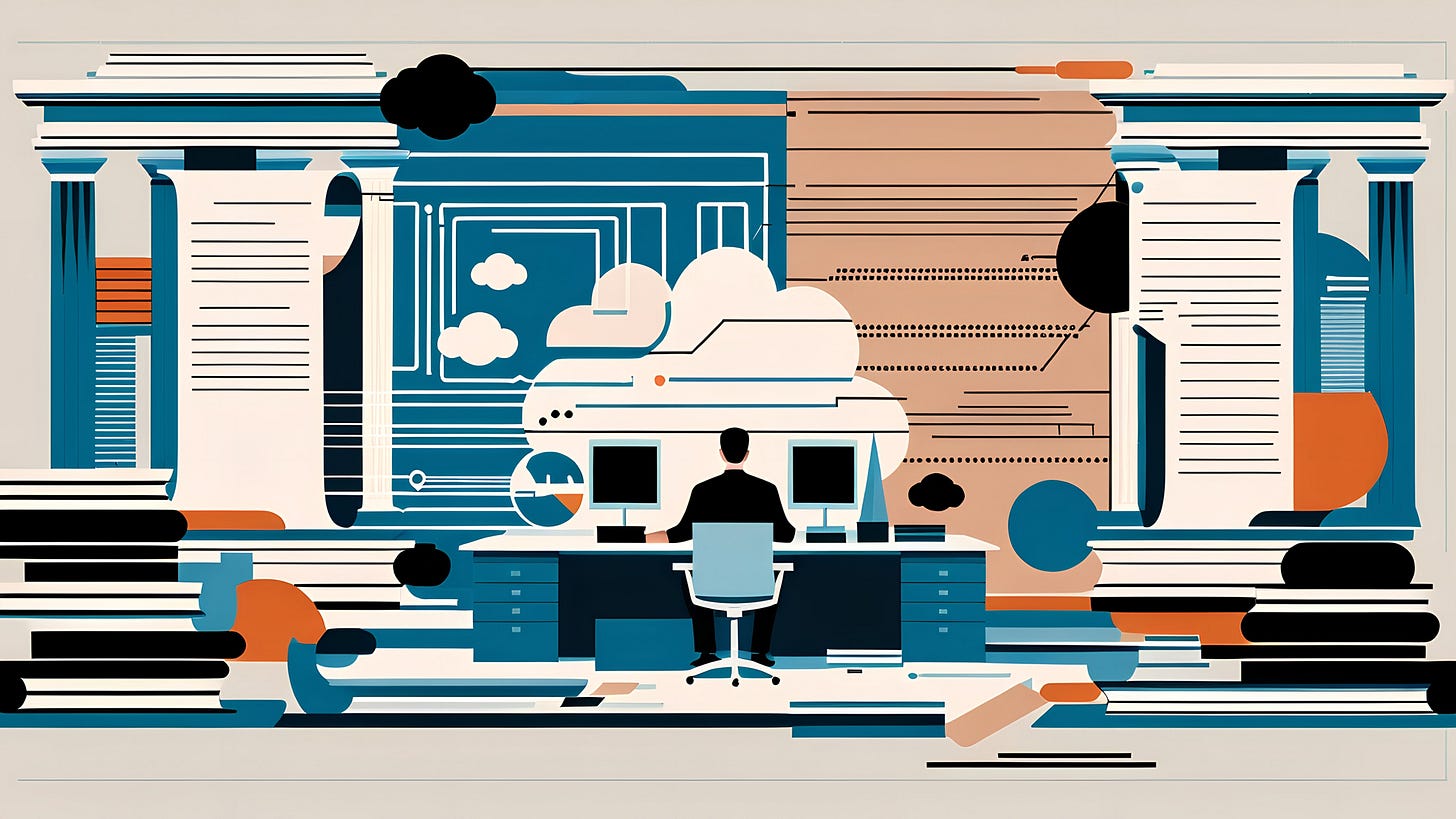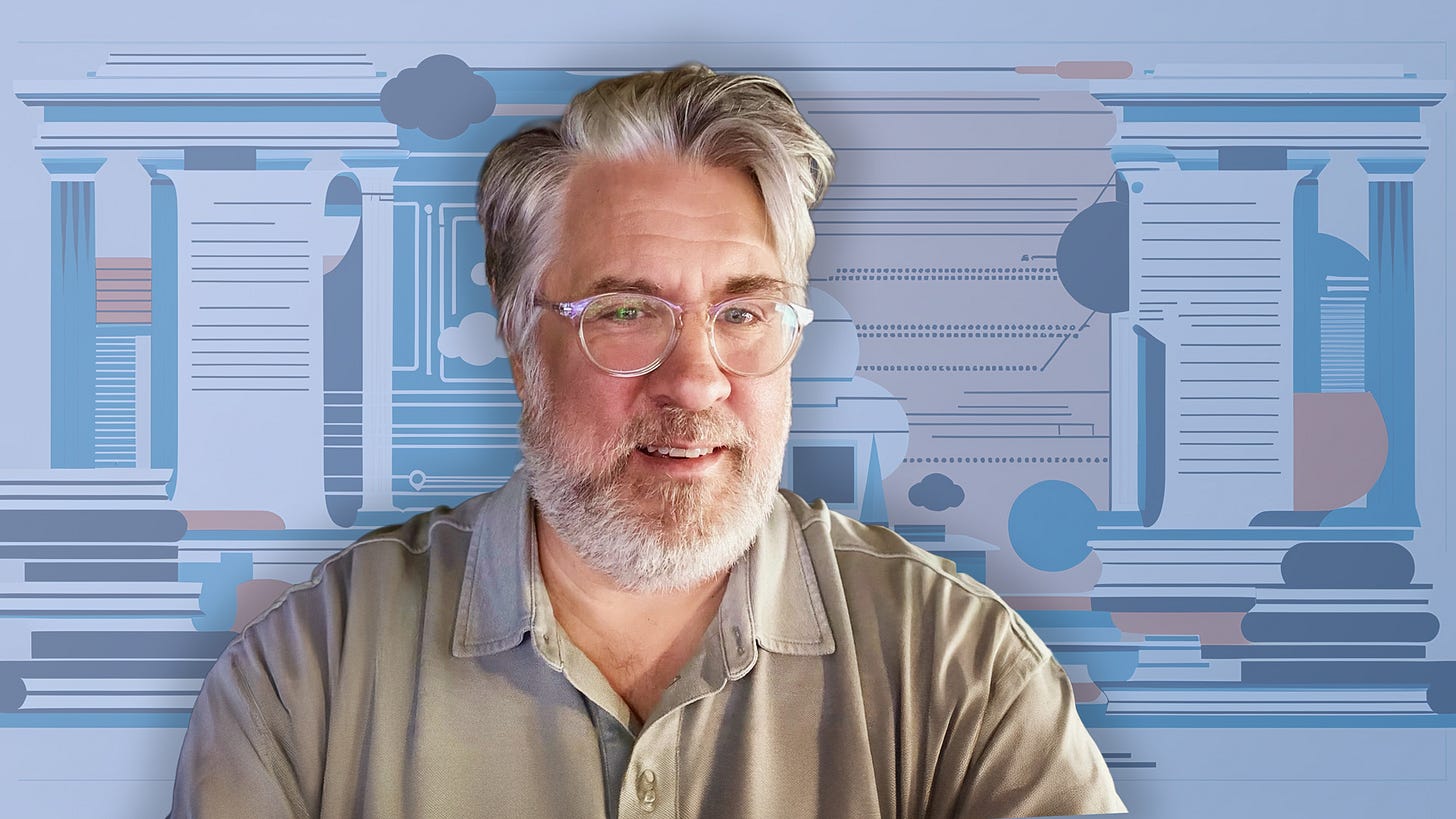The Age of Permission Is Over
Why the next wave of builders won’t ask for permission — and won’t need to.
I came up in the analog-to-digital transition — a kid of the '80s who hit adulthood just as the internet was taking shape. Back then, if you wanted a website, you had to open a blank document and start typing HTML. There were no drag-and-drop builders, no templates, no Squarespace. You either figured out how the machine worked, or you didn’t get to play.
My background is in design and art direction, not programming — but if you had ideas and wanted them to live online, you had to cross that technical threshold. So we did. We read forums, viewed source code, and learned by breaking things. You weren’t trying to become a developer — you were just trying to make something exist. And the only way to do that was to understand enough to build it yourself.
In a strange way, I think AI has brought us back to that same kind of moment — but on a much bigger scale. The tools are more advanced, more abstracted, more powerful. But the underlying dynamic is the same: if you want to move an idea forward, you have to be willing to lean in, learn the language, and experiment. Platforms like Lovable and Cursor haven’t eliminated the need for experts — but they’ve made it possible for people like me to stretch further than ever before. To prototype real things. To turn a rough concept into working software. To get to “something” without a massive team or six-figure budget.
That shift — from dependency to capability — has cracked open the door for a new kind of creator. And it reminds me a lot of this week’s featured guest, Eggs! The Podcast alum, David Young.
David didn’t start in tech either. He studied Greek. Worked on Wall Street. But when he needed tools that didn’t exist yet — a cloud platform, a better deployment model, something faster and lighter than the web stack of the time — he didn’t wait around. He built them. That’s how his company Joyent came to be. That’s how Node.js got started. That’s how modern cloud computing was born — not in a lab, but in the hands of someone who needed something and was willing to learn how to make it real.
David’s story isn’t just about credentials or perfect timing. It’s about curiosity, courage, and commitment — three things that have always mattered, and maybe matter more now than ever.
Meet the Guy Who Built the Internet You Use Today
David Young doesn’t come from a traditional tech background — and that’s exactly what makes his story so compelling.
After studying Greek and classical languages at Columbia, David took a detour through Wall Street before eventually landing in early-stage tech. In the early 2000s, he co-founded Joyent, one of the original cloud infrastructure companies — a platform that would go on to power LinkedIn, serve as the birthplace of Node.js, and quietly shape the way modern apps are built and deployed. Long before “cloud” became a buzzword, David and his team were building it from the ground up.
Today, he’s the founder of Federated Computer, a company focused on simplifying and securing open-source software delivery — especially for small teams and independent builders. It’s the same pattern he’s followed his whole career: build what you need, then open the door for others to follow..
The Best Ideas Start as Personal Problems
David Young has never been particularly interested in chasing trends or building for hype. His work has always started with a personal need — and the willingness to figure it out. Whether that meant standing up a data center from scratch, inventing the infrastructure behind Node.js, or now simplifying open-source software delivery, he’s built by doing — not by speculating.
In our conversation, he reflected on everything from innovation to risk, education to timing, and what it really takes to start something meaningful.
“I wanted to buy a data center like you buy a book from Amazon. And since that didn’t exist, we built it.”
Actionable Insight: Some of the best businesses are just needs you couldn’t meet any other way. If no one’s building the thing you need — that’s your sign to start.
“A lot of great innovation is obvious. Like a good joke. It just makes sense once it’s in front of you.”
Actionable Insight: Innovation doesn’t have to be mind-blowing. If it solves a real problem with clarity and elegance, that’s enough. Obvious is underrated.
“You don’t go to college to learn a task. You go to stretch your brain.”
Actionable Insight: Your value isn’t in what you’ve memorized — it’s in how you think, how you reason, and how well you can adapt. That’s what carries over across industries and decades.
“People say open source isn’t secure. But I say: sunlight is the best disinfectant. I trust what I can inspect.”
Actionable Insight: Transparency builds trust — not just in code, but in business. If you’re trying to prove security or reliability, start by showing your work.
“I’ve been called irresponsible with risk. But that’s who I am. I don’t belong in a big company. I belong at the beginning of things.”
Actionable Insight: Know where you thrive. Some people are builders, not maintainers. There’s value in knowing when it’s time to start again — and when to walk away.
“The liberal arts were never about politics. The word comes from liber — freedom. It’s the education of a free person.’”
Actionable Insight: Don’t underestimate the power of a non-technical background. Great technologists aren’t just engineers — they’re thinkers, readers, writers, and synthesizers.
“You know you’re an entrepreneur when you walk into a Starbucks and think, ‘Maybe being a barista wouldn’t be so bad.’”
Actionable Insight: Doubt is part of the deal. If you’re wrestling with imposter syndrome, burnout, or existential crisis — it doesn’t mean you’re off-track. It means you’re doing the real work.
You’re Not Late. You’re Just on Time.
It’s easy to feel like you’ve missed your window — like the big ideas have already been taken, the breakthroughs already made, the founders already minted. But the truth is, we’re always at the beginning of something. And if this conversation with David reminded me of anything, it’s that timing isn’t about catching the wave — it’s about being ready to paddle when the swell starts to rise.
Whether it’s the early days of cloud computing or the emerging world of AI, the shape of technology is still being defined. The best tools are still being built. The next platforms are still unfinished. And the people who will make them? They’re not all engineers. They’re artists, generalists, readers of ancient Greek. They’re people with a problem to solve and just enough knowledge — or nerve — to try.
So if you’re sitting on something that doesn’t exist yet, now might be the best time to start.
Thanks for reading,
—Ryan
Ready for more?
Catch David Young’s interview in its entirety on Eggs! The Podcast.
Don’t miss a show! Subscribe on Spotify, Apple Podcasts, or really anywhere great podcasts are found.
Path Picks
Cool stuff to help you forge your path to greatness.
Note: The Path Weekly is reader-supported. As such, I may be using affiliate links below. If you want to support the newsletter at no additional cost to you, please consider using the links below. If you’d rather not, most items below are widely available anywhere you want to shop. Thanks! –R
Reading list
If you're looking to go deeper on the themes from this week's newsletter, here are a few books that pair well with the conversation and offer a broader perspective:
“The Cathedral & the Bazaar” by Eric S. Raymond
A foundational text on open source thinking. If you want to understand the philosophy behind the systems David helped build, this is required reading.“Hackers & Painters” by Paul Graham
Essays on software, design, and the creative mindset behind great code — written for people who don’t necessarily come from a CS background.“The Art of Learning” by Josh Waitzkin
A masterclass in how to go deep on anything — from chess to martial arts to entrepreneurship. Especially relevant for nonlinear learners and self-taught builders.“Range: Why Generalists Triumph in a Specialized World” by David Epstein
For anyone who's ever felt “late” or “off-track,” this book will make you feel seen — and give you real tools to make that your advantage.“How to Make Sense of Any Mess” by Abby Covert
A book about information architecture, yes — but really, it’s about learning how to organize chaos, communicate clearly, and build things that make sense.
More to explore
Connect with David Young:
Official Website: federated.computer
LinkedIn: LinkedIn Profile
Work with me
Ryan Roghaar - Fractional CMO/Creative Director/Art Director: https://rogha.ar/portfolio
R2 - Creative Services for Agencies and SMBs: https://www.r2mg.com
***NEW*** R2 Health - Healthcare branding & strategy that connects, inspires trust, and drives results. Powered by R2. https://www.r2mghealth.com
Eggs! The Podcast: https://www.eggscast.com
Would you like a personal introduction to any of the incredible leaders featured in The Path Weekly to explore business or other collaborative opportunities?
Contact me here to learn more about my B2B matchmaking service.
Get featured
Do you want to be featured in a future edition of The Path Weekly?
Contact me to learn more.




